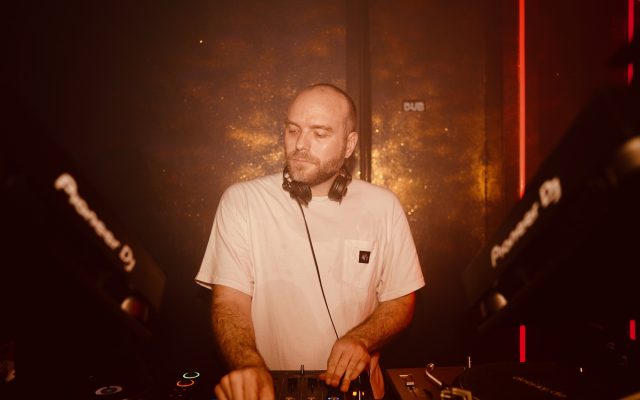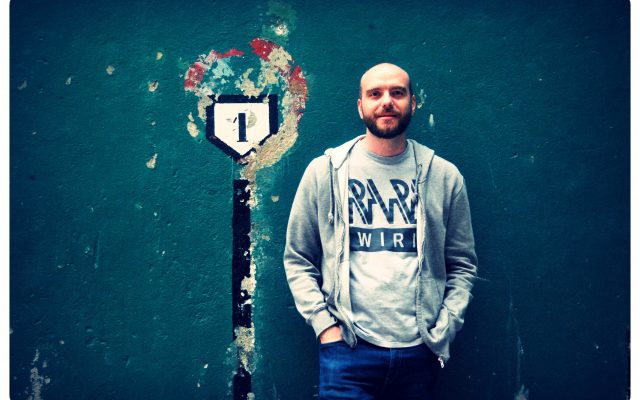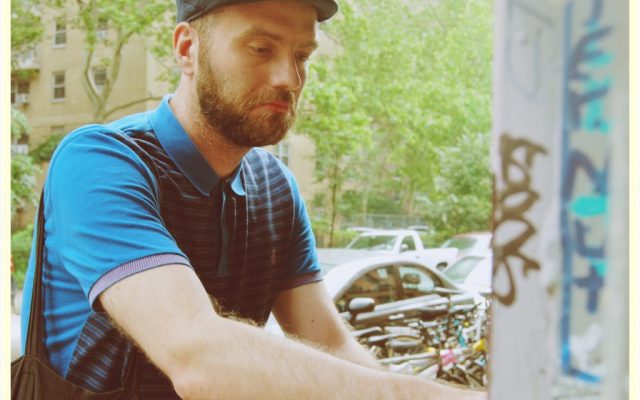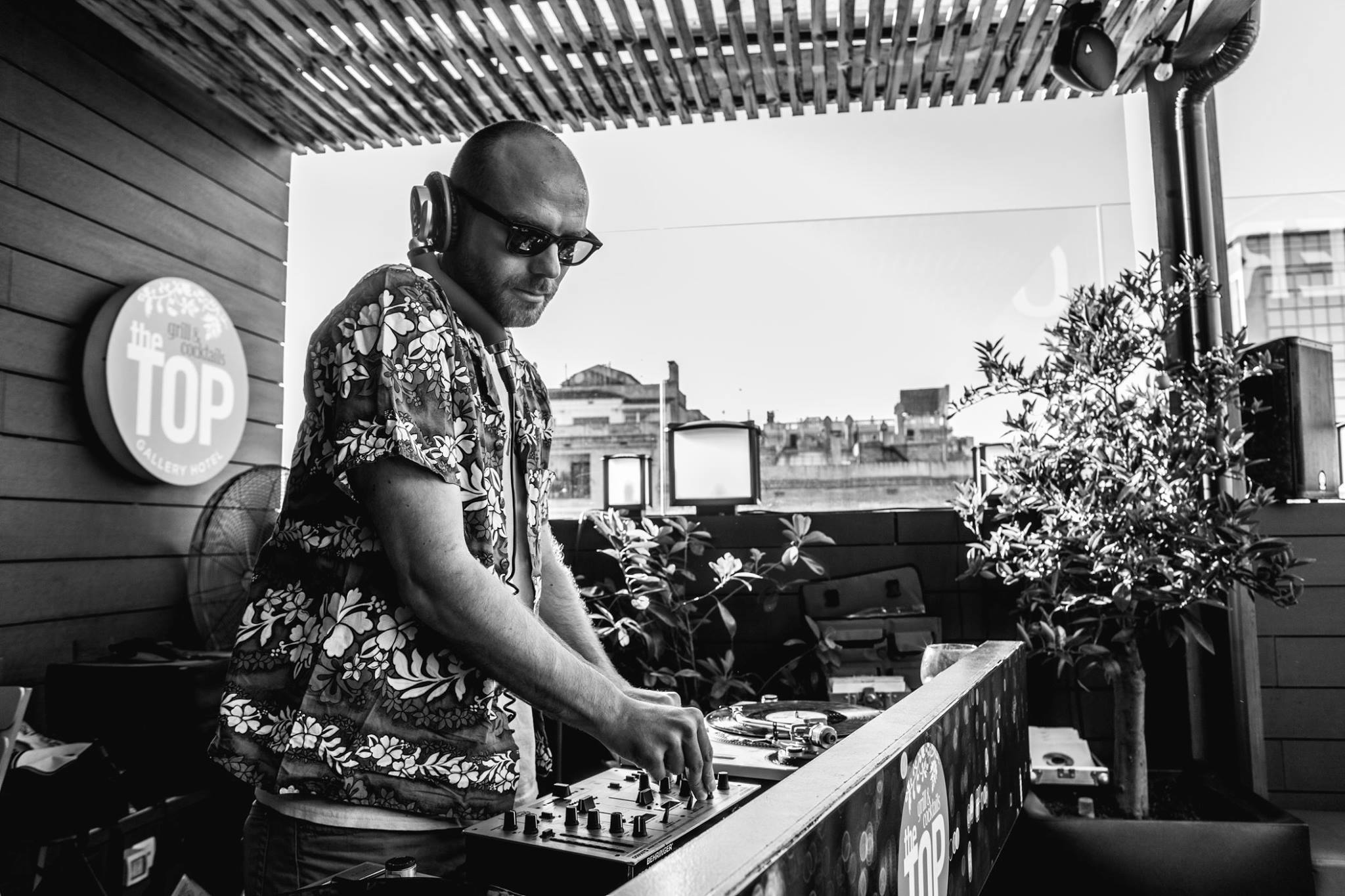Siamo andati a fare quattro chiacchiere con Javi Frias, DJ e producer della scena Disco/House madrilena, per scoprire qualcosa in più sulla scena locale (peraltro terra di rinascita di Bawrut) e su come stanno affrontando la pandemia da quelle parti.
Javi è fondatore della label Night Shift Records, oltre che della serie di edit su 7″ Disco Pocho e del party Discotizer. Durante gli anni ha avuto modo di portare il suo sound anche fuori dai confini europei, toccando base in posti come New York, Il Cairo e Città Del Messico, condividendo i piatti con alcuni tra i nomi più importanti della scena come Louie Vega, David Lee (fka Joey Negro) e Danny Kirivit. La sua musica è stata pubblicata su Street Edits, Giant Cuts e Midnight Riot e viene passata regolarmente nei set di DJ come Horse Meat Disco, Jacques Renault e Folamour. Un curriculum di tutto rispetto, perfetto per darci un’impressione a tutto campo di che aria tira a Puerta del Sol.

(ENGLISH VERSION BELOW)
Prima di tutto, qualche parola su di te, Javi. Come sei finito a fare il DJ e da dove nasce la passione per la disco?
Ho iniziato a suonare alla fine degli anni ’90 perché già all’epoca compravo dischi. Ovviamente non avevo una grande collezione, ma sentivo il bisogno di condividere la mia musica con gli altri. A quel tempo ero seguivo molto la scena Northern Soul, ascoltavo e compravo soul anni ’60 e reggae, ma a poco a poco stavo aprendo la mente scoprendo nuove sonorità come il Funk o il Jazz. È stato quando ho scoperto la Disco che ho davvero cambiato la mia percezione della musica e del clubbing, da lì ho iniziato ad esplorare le radici del movimento negli anni ’70 e ’80, le storie di persone come David Mancuso o Larry Levan. Da lì tutto è cambiato per me.
Nei tuoi set suoni spesso edit e rework di tracce disco. Cosa rende un edit un buon edit? E perché scegliere un rework e non l’originale?
Per me un buon edit è quello che dà nuova vita alla canzone originale. Possono bastare solo alcuni cambiamenti sottili o a volte serve qualcosa di più radicale. Ovviamente, molte tracce non necessitano di alcun ritocco e possono essere suonate già nella loro forma originale, ma altre possono migliorare parecchio una volta modificate ed essere più efficaci per un dancefloor moderno.
Alcune delle tue uscite sono solo in vinile, perché questa scelta? È per via della qualità? La connessione emotiva? O sei semplicemente un purista?
Non c’è dubbio che il formato di base per me sia il vinile. È quello che compro da sempre, da quando ho iniziato a bazzicare il mondo della musica. Per questo motivo ho sempre desiderato che le mie canzoni uscissero principalmente in vinile. Inoltre, con la sovraesposizione che attualmente esiste in termini di uscite digitali, indubbiamente come artista e come etichetta il fatto di pubblicare su vinile credo ti dia un po’ più di credibilità e durabilità nel tempo. Nonostante questo, non sono affatto un purista. Oggi devo dire che compro più musica in digitale che in vinile per vari motivi, principalmente perché accumulare dischi mi porta via un sacco di spazio e perché di solito lavoro in formato digitale.
Cosa pensi che mantenga ancora in vita questo formato nonostante tutti gli inconvenienti che ne derivano?
Come dicevo, attualmente suono in digitale tranne che in occasioni speciali. È evidente che in termini di comfort, soprattutto se viaggi molto, e di possibilità tecniche, per me oggi il formato digitale supera l’analogico se parliamo esclusivamente di DJing. Il vinile ha altre grandi proprietà, naturalmente, ma dopo vent’anni passati trascinando valigie pesanti e suonando in club dove i giradischi sono in cattive condizioni, per me è finita. Ho molto rispetto per le persone che preferiscono ancora suonare su vinile, ma ora è più divertente per me usare i CDJ, penso che mi dia più possibilità quando si tratta di esprimermi come DJ.
Quali sono le tue maggiori influenze musicali?
Come puoi immaginare, potrei darti un milione di nomi. Per rendere la risposta meno lunga e noiosa, ti dirò che Norman Jay ha avuto un’influenza gigante su di me nei primi anni 2000, quando si trattava di plasmare i miei gusti musicali.
Come DJ hai viaggiato e suonato in molti posti diversi. Qual è quello che ti è piaciuto di più? Come lo paragoni alla scena musicale di Madrid?
Vero, negli ultimi due anni ho avuto l’opportunità di viaggiare molto in giro per il mondo, girando posti incredibili come l’Egitto, il Messico o gli Stati Uniti. Se devo proprio scegliere un posto che mi è piaciuto particolarmente, direi New York (per quello che significa come artista avere l’opportunità di suonare lì), Berlino (perché ho avuto l’opportunità di fare un set di 8 ore in cui esprimermi apertamente) e Parigi (poiché è stato l’ultimo set prima del lockdown e lo ricordo come una festa pazzesca).
La scena musicale di Madrid è cresciuta molto negli ultimi anni, anche se la pandemia colpirà senza dubbio molti club, promotori e DJ. Se la confronto con altri posti in cui ho suonato, forse manca un po’ più di apertura mentale e supporto per l’artista locale, qualcosa che mi è sembrato di vedere più in altre città.
Come stai resistendo durante questa pandemia? Sei il tipo che si ispira stando a casa o stai soffrendo la situazione?
Un po’ entrambi. È difficile stare in casa tutto il giorno, soprattutto con un bambino piccolo, quando si tratta di essere creativi, anche se è fantastico quando si tratta di godersi il tempo con la famiglia. In questi mesi ho provato a continuare a registrare materiale, ho anche fatto dei live streaming (anche se non mi sento particolarmente a mio agio a farli) e finalmente sono riuscito a finire un nuovo EP che uscirà presto per la mia etichetta. Quindi direi che, togliendo il fatto di non aver messo dischi per 6 mesi (che è stato piuttosto pesante), non posso lamentarmi.
So che è abbastanza difficile fare progetti di questi tempi, ma che piani hai per il futuro? Qualche release in arrivo?
Come dicevo, ho appena finito un nuovo EP di quattro tracce che uscirà sia in vinile che in digitale per la mia etichetta Night Shift Records nei prossimi mesi. Ho anche un altro singolo in attesa di essere pubblicato alla fine dell’anno su Tropical Disco Records e sto continuando a lavorare su nuove produzioni sia per la mia etichetta che per altri.
Purtroppo il futuro per i DJ sarà buio per i prossimi mesi. Non si sa quando potremo tornare a suonare di nuovo. Il mio party Discotizer è chiuso fino a nuovo avviso. Dobbiamo aspettare e vedere come si evolverà il tutto.
Concludiamo con una nota positiva per le generazioni future, che suggerimento daresti a chi sta muovendo i primi passi come DJ?
Il mio consiglio è di farlo con il cuore, per una vera passione per la musica ed essendo sempre fedele al tuo stile. Per me è l’unico modo per godere veramente di quello che fai e per essere apprezzato, non dagli altri, ma dalla persona più importante: te stesso.

ENGLISH VERSION
First of all, a few words about you, Javi. How did you end up DJing and where does the passion for disco come from?
I started playing in the late ’90s because I was already buying records at that time. Obviously, I didn’t have a large collection, but I really wanted to share my music with others. At that time I was very involved in the northern soul scene, I listened and bought basically 60’s soul and some reggae, but little by little I was opening my mind and discovering new sounds such as funk or jazz, but it was when I discovered disco when it really changed my perception of music and clubbing since I began to investigate the roots of the movement in the 70s and 80s and to meet people like David Mancuso or Larry Levan. From there everything changed for me.
Your sets often feature lots of edits and rework. What do you think makes a good edit? And why picking an edit and not the original?
For me, a good edit is one that gives a new life to the original song. They can be just a few subtle changes or something more radical. Obviously, many tracks do not need any retouching and can be played in their original form, but others can improve when edited and also be more effective on the dance floor today.
Some of your releases are vinyl only, why this choice? It’s because of the quality? The emotional connection? Or are you simply a purist?
There is no doubt that the basic format for me is vinyl. It’s what I’ve been buying my whole life, ever since I started in this music business. For this reason, I have always wanted my songs to come out primarily in wax. Besides, with the overexposure that currently exists in terms of digital releases, undoubtedly as an artist and as a label, the fact of publishing on vinyl I think gives you a little more credibility and durability over time. Despite this, I am not at all a purist, and today I have to say that I buy more music on digital than on vinyl for various reasons, mainly due to accumulation-space and because I usually DJ in digital format.
What do you think still keeps this format alive despite all the inconveniences that come with it?
As I told you before, I currently play digitally except on special occasions. It is evident that in terms of comfort, especially if you travel a lot, as in terms of technical possibilities, for me today the digital format exceeds the analog if we talk exclusively about DJing. Vinyl has other great things, of course, but after twenty years lugging heavy suitcases and hitting clubs where turntables are in poor condition, it’s over for me. I have a lot of respect for people who still prefer to play on vinyl, but now it’s more fun for me to use CDJ, I think it gives me more possibilities when it comes to expressing myself as a DJ.
What are your biggest musical influences?
As you can imagine, I could give you a million names. To make it so long and boring, I’ll tell you that Norman Jay was a brutal influence on me in the early 2000s when it came to shaping my musical tastes.
You seem to have traveled and played in lots of different places. What’s the place you liked the most? How do you think the music scene in Madrid compares to it?
The truth is that in the last two years I have had the opportunity to travel a lot around the world, clicking in incredible places like Egypt, Mexico, or the US, but if I have to choose a place where I especially enjoyed, I choose New York (for what it means as an artist to have the opportunity to play there), Berlin (because I had the opportunity to do an 8-hour set and express myself openly) and Paris (since it was the last session before lockdown and I remember it as a tremendous party).
The music scene in Madrid has been growing in recent years, although the pandemic will undoubtedly affect clubs, promoters, and DJs a lot. If I compare it with other places where I have played, maybe I miss a little more open-mindedness and support for the local artist, something that I have seemed to see in other cities.
How are you holding on during this pandemic? Are you the kind that gets inspired by being at home or are you suffering the situation?
A little of both. It is difficult to be indoors all day, especially with a small child, when it comes to being able to create, although it is great when it comes to enjoying time with the family.
During these months I have tried to continue recording sessions, I have also done some live streaming (although I do not feel particularly comfortable with it), and I have finally been able to finish a new EP that will be released soon on my label, so, removing the fact that I cannot DJ during 6 months (which is pretty rough), it hasn’t been too bad either.
I know it’s quite hard to make plans in these crazy times, but do you have any for the future? Any release coming up?
As I said, I just finished a new four-song EP that will be out on both vinyl and digital on my Night Shift Records label in the coming months. I also have another single pending to be released at the end of the year on Tropical Disco Records, and I continue to work on new productions both for my label and for others.
Sadly, the future for DJs is pretty dark for the next few months. It is not known when we will be able to play again, which is quite difficult. My Discotizer club is on hold until further notice, so we’ll have to wait to see how it all evolves.
Let’s close on a note for the future generations, what’s your number one suggestion for someone that is moving their first steps in the world of DJing?
My advice is that you do it from the heart, out of a true passion for music, and always being true to your style. For me it is the only way to truly enjoy what you do and to have recognition, but not that of others, if not the most important, your own.



